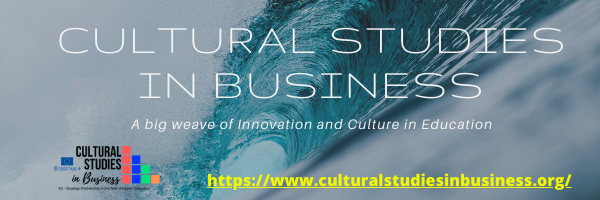CSB: It is time to take stocks!
- csbprojectitaly
- Feb 17, 2021
- 4 min read
We are approaching the closure of the project and it is time to take stock. Two years of work which, due to the pandemic emergency, benefited from a further six months of activity, have led the European partnership to achieve important results. Looking back at the past two years we can have an overview of the CSB Project and evaluate the profound interconnections that exist between the different phases and Outputs, in particular between Output two and three: the CSB Master’s Degree (Output 2); the Special Issue of the Management - Journal of Contemporary Management Issues (Output 3)
The proposal of an innovative curriculum, which can combine economic and humanistic disciplines together, is in fact the culmination of a research path that has its basis in an international scientific debate that arose at the beginning of the economic crisis of 2008. What has been mainly discussed is the ability of economics to "predict" a crisis and put in place the tools to prevent it. Scholars, experts, exponents of the political world, have wondered why no one had foreseen the crisis, despite the sophisticated analysis tools available to the economy.
This debate affected the Higher Education Sector. The way in which economics is taught in universities has been questioned, fuelling the criticism that since the nineties have seen teachers and students of economics faculties engaged, particularly in the Anglo-Saxon academic world. According to these critical voices, the excessive focus on teaching methodology, the lack of a pluralistic approach produces a standardisation in economic teaching activity. The problem at root is that economic principles are taught with little or no regard for the theoretical controversies, disputes, and social context from which they emerge.
This debate has found space in a series of international journals interested in the Higher Education sector: Higher Education; European Journal of Higher Education; European Journal of Education; European Educational Research Journal; Higher Education Research and Development; Higher Education Policy; The Journal of Economic Education
It has also given birth to international networks that promote a change in the teaching of economics: Post-Crash Economics at the University of Manchester; Cambridge Society for Economic Pluralism; CORE – Economics for a Changing World; Institute for New Economic Thinking; Rethinking Economics; European Association for Evolutionary Political Economy; Promoting Economic Pluralism, etc …
The proposal of the CSB Master’s Degree incorporates this international debate and proposes to overcome a narrow vision of the economy, opening the way to a contamination of knowledge. Doing this, we started from an international research shared with the partners, launched with the Output 1, handled out in two different steps: a) the elaboration of National Reports on the state of the art of economic disciplines in the University systems of the six partner countries of the project; b) the International Survey conducted through an online questionnaire submitted to an International Expert Panel (IEP), composed of experts from the Erasmus Program Countries (28), the Non-EU Program Countries (5), and the Partner Countries (limited to the area of the Western Balkans, involved in the project). The data Report is free download on the Project website.
The role of international debate in imagining a new model of teaching economics and the data emerged from the research are not the only theoretical references on which the project is based. The other one is the wider framework, represented by the pan-European education reform known as Bologna Process and by the constitution of the European Higher Education Area (EHEA).
From this point of view, it is possible to stress the deep relationship existing among the three project outputs: the proposal of an innovative curriculum finds its empirical foundation in the research path and the theoretical one in the international debate to which we wanted to participate by launching the Special Issue of the Management - Journal of Contemporary Management Issues. Probably, we could have found other solutions to present our ideas – a book, an international conference - but the choice for the Special Issue of Management Journal, published by Faculty of Economics, Business and Tourism in Split, partner of the CSB Project, aims to open the debate to a wider audience, involving disciplines that follow an economic approach (marketing, management). It was an excellent choice because it gave us the opportunity to share with other colleagues, even outside the partnership, the ideas that are the basis of our project.
When a project closes, the ideas it has set in motion do not stop and continue to grow within our universities. The project partners have already announced that the CSB curriculum will become part of their teaching activities. Sapienza has already re-proposed the 4th edition of the Pilot Course in the next second semester. Good luck CSB!
Written by
Maria Cristina Marchetti, Full Professor of Sociology of Political Phenomena. President of the Educational Area in Political Science and International Relations - Department of Political Science - Sapienza University of Rome (Italy).
Main Coordinator of the Cultural Studies in Business project.
Sources:
Higher Education https://www.springer.com/journal/10734
European Journal of Higher Education https://www.tandfonline.com/toc/rehe20/current
European Journal of Education https://onlinelibrary.wiley.com/journal/14653435
European Educational Research Journal https://journals.sagepub.com/home/eer
Higher Education Research and Development https://www.tandfonline.com/toc/cher20/current
Higher Education Policy https://www.palgrave.com/gp/journal/41307
European Higher Education Area http://www.ehea.info/
Bologna Process https://ec.europa.eu/education/policies/higher-education/bologna-process-and-european-higher-education-area_en
Post-Crash Economics – University of Manchester - http://www.post-crasheconomics.com/
Cambridge Society for Economic Pluralism - http://www.cambridgepluralism.org/
CORE – Economics for a Changing World - https://www.core-econ.org/
Institute for New Economic Thinking - https://www.ineteconomics.org/
Rethinking Economics - http://www.rethinkeconomics.org/
European Association for Evolutionary Political Economy - https://eaepe.org/
.jpg)











Comments